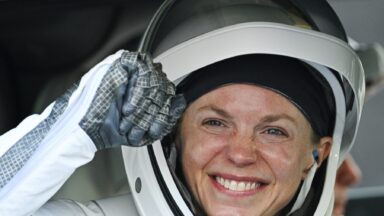
Sam Altman comes out swinging at The New York Times
During a high-profile event in San Francisco, OpenAI's CEO Sam Altman made headlines with a bold entrance that set the tone for an unconventional interview. Surrounded by a packed audience, Altman, alongside COO Brad Lightcap, took the stage before being formally introduced, leading to an unexpected moment of tension. As the live recording of the technology podcast "Hard Fork" unfolded, hosted by The New York Times' Kevin Roose and Casey Newton, Altman quickly shifted the discussion to the ongoing lawsuit filed by The New York Times. The lawsuit accuses OpenAI and Microsoft of misusing the publication's articles to train their AI models. Altman expressed his frustration over a recent court request for OpenAI to maintain user logs from ChatGPT, even those from private conversations. "The New York Times, a longstanding institution, is advocating that we should keep user logs even under privacy requests," Altman stated, emphasizing his discontent while still expressing admiration for the publication. The conversation took a sharp turn as Altman pressed the podcasters for their views on the lawsuit, but they refrained, citing their positions as journalists working for The New York Times. This encounter, although brief, highlighted the growing tension between tech companies and media organizations as they navigate the complexities of copyright in the age of AI. In recent years, several media outlets have initiated legal actions against AI firms like OpenAI, Anthropic, and Google, claiming that these companies are undermining the value of their copyrighted content. However, there appears to be a shift in favor of tech firms, exemplified by a recent ruling in favor of Anthropic that deemed certain uses of copyrighted books for AI training as legal. Amidst these challenges, OpenAI faces mounting competition, notably from Meta, whose CEO Mark Zuckerberg has reportedly been pursuing OpenAI's top talent with lucrative offers. When questioned about Zuckerberg's intentions regarding superintelligent AI, Lightcap humorously remarked, "I think he believes he is superintelligent." The dynamic between OpenAI and Microsoft also surfaced, with Altman acknowledging the tensions that arise as both companies vie for dominance in the enterprise software market. "In any deep partnership, there are points of tension, and we certainly have those," he explained, while expressing optimism about the long-term value of their collaboration. As the night progressed, it became evident that OpenAI's leadership is not only focused on battling legal challenges but also on addressing the ethical implications of AI technology. When asked about the risks of users engaging in harmful dialogues with ChatGPT, Altman affirmed that the company is taking proactive measures to mitigate such situations, though he acknowledged the ongoing difficulties in reaching vulnerable individuals effectively. This event encapsulated the precarious position of AI developers like OpenAI, who find themselves at the intersection of technological advancement and regulatory scrutiny, as they strive to navigate both competitive pressures and ethical responsibilities in a rapidly evolving landscape.
Navigating the Challenges of Raising Series C Funding in 2025
Startup founders are facing a challenging capital market landscape in 2025, as highlighted by Cathy Gao, a partner at Sa...
TechCrunch | Aug 02, 2025, 13:50
Massive Discounts on Smartwatches During Amazon's Great Freedom Sale
Smartwatches have evolved into essential lifestyle accessories that keep users connected and organized right from their ...
Mint | Aug 02, 2025, 13:45
Unlocking the Power of NotebookLM: Google's Innovative AI Note-Taking Tool
In a year filled with significant AI advancements, Google has not only focused on its flagship Gemini model but has also...
Mint | Aug 02, 2025, 07:00
Kleiner Perkins Reaps Rewards from Successful IPOs and Strategic Investments
This week has proven to be exceptionally fruitful for Kleiner Perkins, a prominent venture capital firm, as it celebrate...
TechCrunch | Aug 01, 2025, 22:35
Crew-11 Launches to ISS Amid Future Changes for SpaceX Operations
A new four-member team is on its way to the International Space Station (ISS), having launched from NASA's Kennedy Space...
Ars Technica | Aug 01, 2025, 22:10